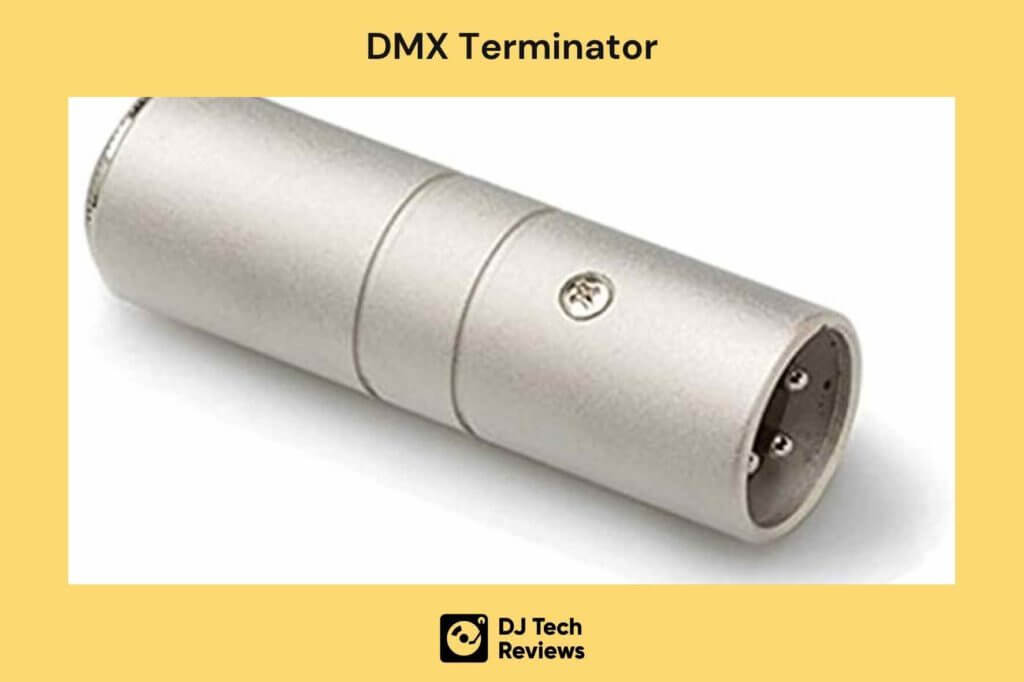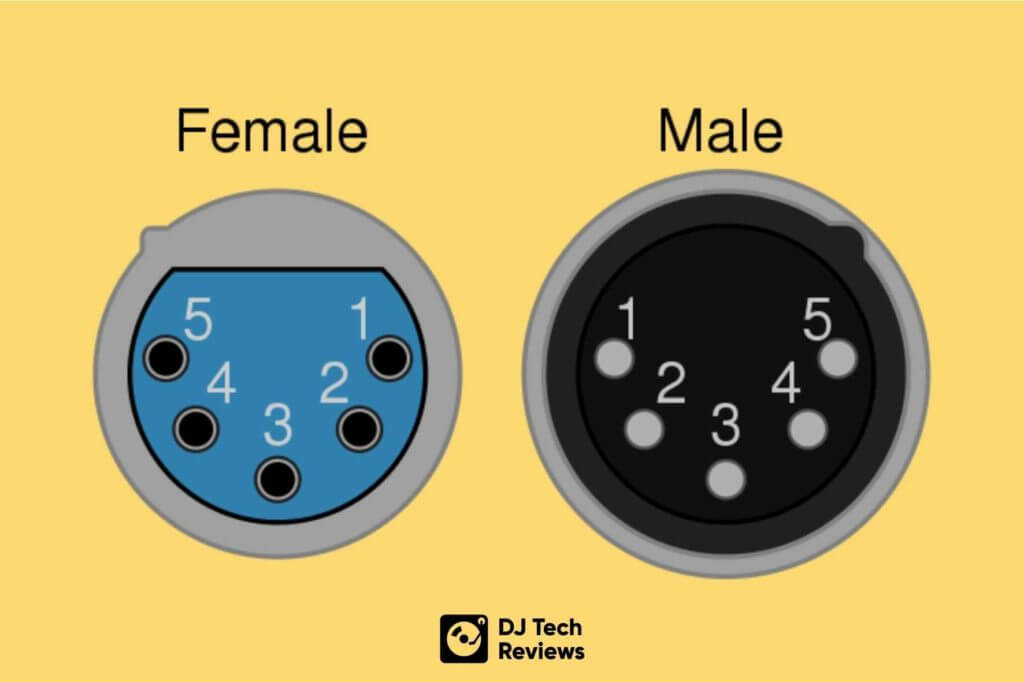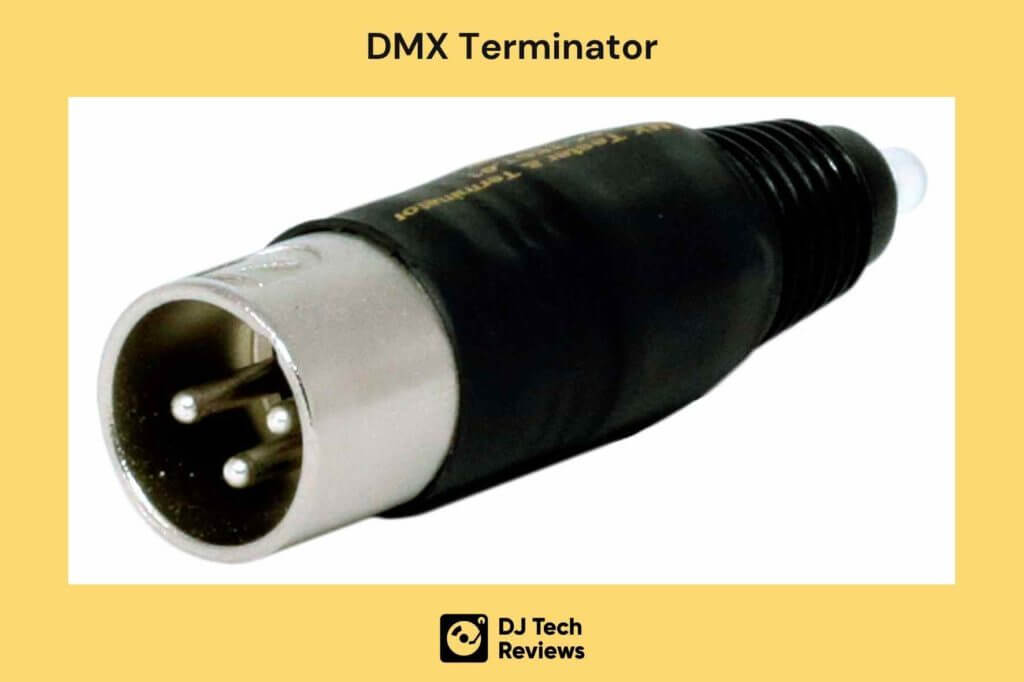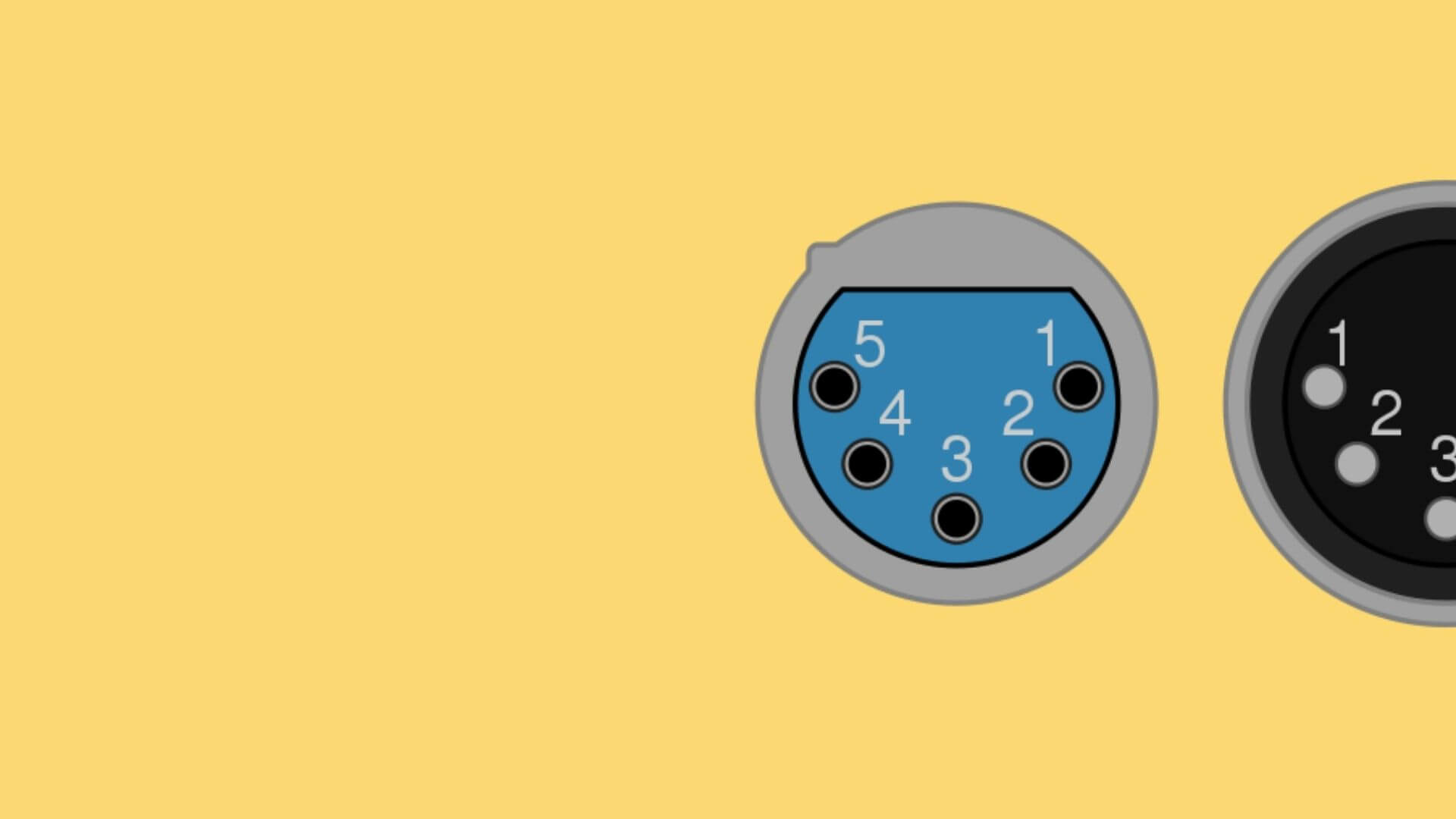DMX Terminator? Nope, it’s not something out of the latest Arnold Schwarzenegger sci-fi film. (wink*)
As a DJ, there are a number of different things you have to be constantly aware of. While these largely deal with the expected challenges, like making sure your sound is good or that you’re using the right DJ techniques in your performance, it can also be some of the more monotonous (yet just as show-stopping) problems. Things like a light bulb that is acting strangely or a DJ light switch that cuts off flickers, changes its color, or has a different pattern, while seeming fairly small, can be quite problematic while on stage performing in public.
In many cases, most of these events are a sign that you need a DMX terminator.
DMX Terminator: What is It & Why Should You Use It?
A DMX terminator is an essential part of the DMX DJ light system. As the name implies, when using it, you will be terminating every one of your DMX chains. A great example of this is shown with the DMX512, which is used for 90% of all DJ applications.
Essentially, DMX terminators work by preventing your light fixtures from behaving strangely or out of the norm. They’re needed whenever you notice a light that seems to be out of sync or is constantly flickering or randomly changing patterns. Adam Bennette, a famous DMX product designer once said that one of the most common reasons for a faulty DMX512 system is due to missing or incorrectly installed termination.
When Is A DMX Terminator Needed?
While you may be under the impression that a DMX terminator is necessary at all times, the reality is that there are several instances where you don’t need to worry about them. If, as an example, your DJ light is used in the “sound-activated” mode – which uses its microphone to detect music to sync – you won’t need a DMX terminator.
The only time a DMX terminator is necessary is when your lights are put into “DMX mode”, and are chained due to DMX cables. During this time, the controller lights are controlled by an electrical signal that relays numerical information telling the lights what to do. This electrical signal is built on something called a “DMX controller”.
Normally, when all systems are running correctly, the signal will be in a square shape. However, if there is no DMX terminator present or the current one is incorrectly installed, rather than a square, when the signal arrives at the end of the DMX chain, it will instead “reflect” back into the cable. This reflection will, over time, eventually deteriorate the signal, ultimately causing your lights to begin acting strangely.
As an example, imagine that your device gets two signals at the same time; the original signal as well as a reflected signal. Because it is getting both simultaneously, the device gets confused on which it should acknowledge, causing it to not respond to either.
A DMX terminator works by stopping this process from occurring, thus keeping the signal single and clean.

How Does A DMX Terminator Work?
To prevent the device from reflecting in on itself, a DMX terminator works by transforming the signal’s energy into heat. With the help of a resistor, which has the same impedance as the DMX cable (120 ohms), the DMX terminator can absorb the maximum amount of energy, completely nullifying the light reflection from happening.
When Should You Use A DMX Terminator?
A DMX terminator has normally required if the total of your DMX cable is over 590 feet throughout your chain. If you don’t have a cable that long, while a DMX terminator is certainly important and recommended, it isn’t a mandatory requirement. As such, mobile DJs that don’t carry a ton of lights around, won’t need many (if any) DMX cables. Because of this, they may not need a DMX terminator at all.
If there is an issue with a shorter, more mobile cable setup, there are a few potential issues that may be the cause. You may be dealing with some amounts of reflection combined with poor-quality cables. You may also be dealing with bad light fixtures. If that is the case, consider getting a DMX terminator as well, as it will likely handle any overall issues via removal of the noises in the signal, regardless of their location. Generally, the more cables or appliances you’re dealing with, the more likely you’ll need a DMX terminator to avoid any potential issues.
What If Only One Appliance Has An Issue
Invariably, there are times when only a single appliance acts strangely. This may happen even if you’ve placed the same model along with several parts of your chain. For many, this can seem confusing, with many believing that there is an issue with the DJ light itself rather than the DMX chain or that the DMX terminator is missing.
In reality, the reason that this happens is due to there being noises added by the other lights throughout the chain. This noise will steadily and progressively continue to accumulate, eventually wearing away at the most sensitive of the appliances. By getting a DMX terminator, you can easily resolve this issue before it extends out to affect the other appliances later on.

How Much Will A DMX Terminator Cost?
On average, a single DMX terminator costs around $7 from Amazon. Keep in mind that they are generally sold as pairs, so you’ll generally find yourself paying at least $14, more often than not. The 5-pin terminator is around the same price as the 3-pin ones, so don’t be afraid to larger option if you can.
An important thing to note is that, for most situations and scenarios, unless you’re running a large rig, you’ll only need one terminator, which will be placed at the end of a DMX chain. This is especially true for mobile DJs, as they rarely have more than a dozen-odd fixtures at any point in time. That being said, it’s still worth it to have a second terminator available in case there are any issues with the first one.
Building A DMX Terminator
While a DMX terminator is fairly inexpensive to purchase, if for whatever reason, you don’t want to buy them, you can always make it yourself. A DMX terminator is incredibly simple and easy to put together. It is a simple 120-ohm resistor that links pins 2 and 3 together. The only thing you have to do is to weld the resistor between the two pins and connect them to an XLR plug.
A DMX terminator works well with 3 pins as well as 5 pins, provided you’ve purchased a male plug instead of a female plug.
What If A DMX Terminator Does Not Fix The Issue?
Often, many people that try to install a DMX terminator, do so incorrectly. Because of this, it is easy to believe that the issue isn’t being resolved because the terminator issue isn’t solving it. The reality is that, more often than not, the DMX terminator has not been installed correctly. Read below to check out some of the most common causes for a DMX terminator to appear faulty.
Reason #1. You’re Using The Wrong Cable
Arguably one of the more common mistakes that can happen is that a person uses a microphone cable (particularly an XLR cable) rather than the expected DMX cables.
While XLR cables do have the same plugs or connectors, the cable impedance is different. This means that, while you can plug it in, the cables won’t read one another, causing it not to work. XLR cables, in particular, have a higher impedance than DMX cables. Because of this, plugged-in XLR cables will dampen the square signal, affecting the overall fixture readings.
If a DJ light reads one peak as too early, then it will likely also read a value as smaller than what the signal should be. This can result in the signal being interpreted as a false command, resulting in some very strange behavior.
Reason #2. You’re Cable Is Too Long
If you’re still dealing with problems after correctly installing your DMX Terminator and cables, there’s a chance that you’re using cables that are too long for what you need. As a good form of practice, make sure to keep the length under 1,000 feet. You can do this by using a DMX splitter, as it can hold several DMX chains together rather than just one.

DMX Terminator: Summary
Oftentimes, when it comes to performing as a DJ, the majority of what you’ll learn about deals strictly with the performance itself. Most people will tell you about the different types of speakers and controllers to use, how to set up your home studio, as well as the different terms and techniques often used by DJs.
All of these things are very, very important, and can play a huge role in whether your career succeeds or fails in the DJ space. However, just as important as all of these things are the more technical aspects, such as what happens if one of your lights is acting strange.
By understanding what a DMX terminator is, how it works, and whether you’ll need it for your respective setup, you can make sure all of the important “behind the scenes” technical aspects of being a DJ are covered, so you can focus all of your attention on the more important parts of the performance – that being the performance itself!



